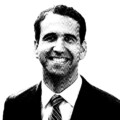I have been thinking a lot about public discourse in Canada and beyond. I suspect I am far from the only person who thinks it is in bad shape. Today this vital sphere of human activity seems like trench warfare.“According to polling conducted by Public Square and Maru/Blue and exclusively provided to The Hub, 77 percent of Canadians polled either somewhat or strongly agree that they are angry. Seventy-three percent of respondents strongly agree that “society is coming apart.” https://thehub.ca/2021-04-12/canadians-are-angry-so-what-can-we-do-about-it/ It has felt this way for a long time, but lately, it has felt even worse. It increasingly seems like we don’t know how to speak to each other once the conversation moves on from the weather.
I have been thinking, more specifically, about why we are where we are. I believe one of the roots of our growing inability to have civil and reasoned debate on matters of import is that too many of us have become, in a word, sheep. Let me explain.
We have largely forgotten the value of independent, critical thinking. We too often allow ourselves to become wedded to the thoughts of others. We too often abdicate our capacity for critical evaluation of what those who are authorities on this or that matter—or those who wake up one morning and purport to be authorities on this or that matter—have to say. We too often unreflectively endorse the opinions of others. They have become shepherds and we have become sheep.
The rise in uncritical thinking has accentuated the rise in tribalism.“Data collected by Pollara Strategic Insights, and provided exclusively to CityNews, showed that 33 per cent of Canadians hold negative, intolerant, prejudiced or hostile views against at least one other segment of the population. This included those of different races, religions, sexual orientations, and gender identities.” https://toronto.citynews.ca/2019/06/24/canadians-generally-tolerant-toward-their-neighbours-tribalism-an-issue-poll/ Ideological opponents of your shepherd become your opponents. The sheep of other shepherds become your opponents too. We start to view others not as fellow human beings who share the same basic concerns and aspirations but as enemies who must be embarrassed and defeated—even if reason, evidence, and logic stand in the way.
To make matters worse, as human beings we tend to cling to our core convictions so tightly that we at times lose sight of their objective validity or invalidity. These convictions, owing to their importance to our understanding of the world around us, become intertwined with our emotions. They can even embed themselves into our sense of self and our identity. For many of us, these convictions play a significant role in shaping who we are and what we stand for.
We accordingly dread the prospect of learning that our convictions are flawed. This revelation would require us—or at least should require us—to drop them and seek better ones. This is easier said than done given the link between our convictions and identity. Plus, should you abandon your longstanding beliefs on contested issues, your tribe may shun you. The other side may mock you. You may torpedo your career goals. You may even lose your current job. It is, in these circumstances, far more appealing to publicly hold on to these convictions even if you don’t sincerely subscribe to them anymore.
But that scenario—pretending to believe what you don’t believe—may be the lesser evil. What seems to occur more often is that we manage to convince ourselves that we are still in the right even if the evidence suggests otherwise. We let pride take control instead of allowing the pursuit of truth to guide us. Sadly, this approach is incentivized today. In the tribal era, pride is applauded and truth is optional. Everyone is infallible and the fallible need not speak.
How do we break free from this paradigm? The first step is to admit that we are living in it. We have all, to some extent, allowed ourselves to be less robust critical thinkers in this age. With an overabundance of outlets and sources for the dissemination of thought and opinion and no filter for truth, we have far too often let others do the thinking for us on important issues. The temptation—one that may be confronting you right now—is to think that we are expert critical thinkers and that other people have work to do. This is false. We all have work to do.
The second step is to put an end to unthinkingly rubber-stamping the opinions of people we consider to be authorities. A claim is not true simply because a particular person says it is true, because we wish it to be true, or because from our perspective it would be convenient or advantageous for it to be true. Claims must be supported by reason, evidence, and logic before we assent to them. Ideas with which we disagree are not false simply because they are expressed by individuals from another tribe. In a world increasingly shaped by the movers and shakers on social media, it is worthwhile to remind ourselves now and then that a person’s popularity on Twitter is no guarantor of wisdom.
The third step is to stop viewing our ideological opponents as actual opponents and as enemies we must defeat no matter what.“Little wonder then, that a significant segment of Canadians believe political discourse in this country is devoid of compromise. While just under half (48%) disagree, two-in-five (37%) are of the view that when it comes to talking politics, Canadians have retreated to their corners and are refusing to move. That feeling is strongest in Alberta and Saskatchewan, where at least two-in-five believe political compromise is lacking in the country, but at least one-third in all regions believe this is the case.” https://angusreid.org/canada-politics-government-division-disengagement/ Our conversations on pressing matters that call for solutions would be much more constructive if we viewed our interlocutors as counterparts in the search for the best or right answers. We must, in other words, detribalize our public discourse. We desperately need to transform our public square from a battlefield into a genuine marketplace of ideas.
Finally, we should be less dominated by political stripes and labels. I was struck when listening to The Hub’s interview with Globe and Mail columnist Andrew Coyne. When asked where he sits on the political spectrum, Coyne said that he doesn’t see himself as immovably sitting on a specific point on it. Coyne described himself in a way that suggested open-mindedness when he thinks about political and policy issues rather than robotically predetermining his beliefs through the lens of a particular worldview.“Well, people are always tending to pigeonhole people, and that’s natural, I suppose. We try to simplify things. What I don’t understand is why people want to pigeonhole themselves. So, when people ask me, I’d say sort of half-jokingly, I’m a conservative, liberal, libertarian, socialist. But I kind of mean it, because I’ve always felt that each of the traditions has something to teach us. There are nuggets of wisdom in conservatism and liberalism and libertarianism and socialism, and I don’t see why you have to sort of buy the package.” https://thehub.ca/2022-01-18/columnist-andrew-coyne-on-his-intellectual-influences/ These comments are refreshing. It is a pity that his approach seems to be the exception to the rule.
This guide to reclaiming the art of critical thinking does not imply that we should not form and defend our convictions. Of course we should. One would be hard-pressed to describe Andrew Coyne as someone who does not form and defend strong opinions on contested matters and controversial issues.
The key point is that we should not become so invested in our convictions that we become impermeable to thinking that they might be wrong. We should, in other words, always strive to maintain a critical posture toward our convictions. To adopt this posture is to respect and honour the end that our convictions are supposed to serve. That end is truth.
Shepherds are normally viewed in a positive light. Here, however, they have been negatively portrayed. But the key perspective is that of the sheep, and let’s be honest: we are fond of our shepherds. We follow, retweet, share, and trust. We are often quick to attack those who criticize them. We are delighted when we bring other sheep into the fold.
Rather than adding to the flock, it is high time for the flocks to disperse. I have heard the prescription put this way: think deeply, think critically, think for yourself.
We are not meant to be sheep when it comes to our capacity to think. We don’t belong in the sheepfold. It’s time for us—for you—to open the gates.
Recommended for You

Christopher Snook: Is Canada sleepwalking into dystopia?

Ginny Roth: How vacant liberal nationalism left Canada worse off than George Grant even imagined

Matthew Grills: Joey Chestnut is America

‘There are consequences to this legislation’: Michael Geist on why the Canada-U.S. digital services tax dustup was a long time coming




